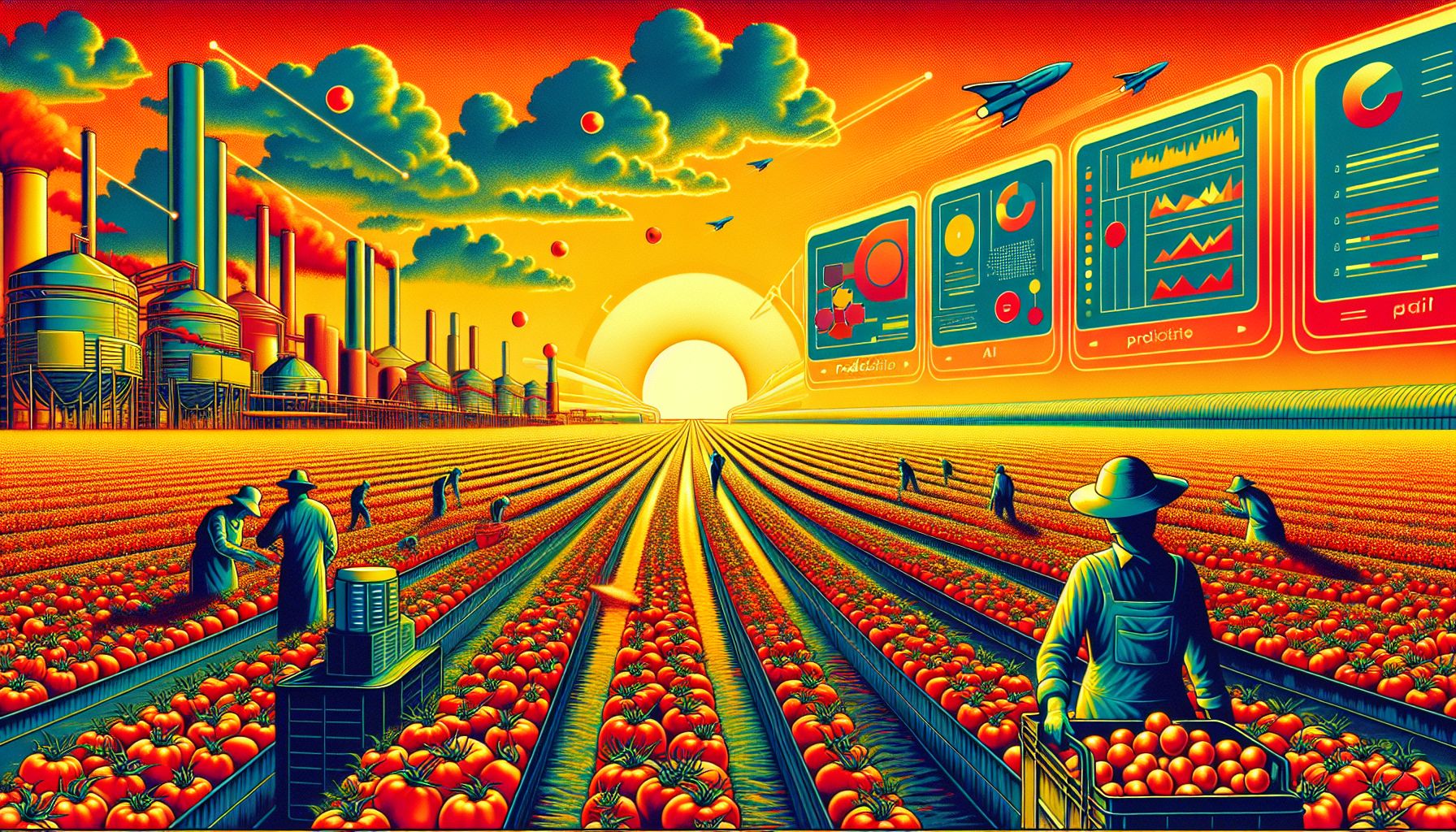AI Revolution in Tomato Farming: Precision Yield Forecasting

The Netherlands, Tuesday, 1 October 2024.
A groundbreaking AI-driven technology is transforming tomato cultivation, offering growers unprecedented accuracy in yield forecasting. This innovation promises to revolutionize business management and supply chain decisions, demonstrating the profound impact of artificial intelligence on modern agriculture. By leveraging advanced algorithms, farmers can now predict harvests with remarkable precision, potentially reshaping the future of crop production.
Understanding the Technology
The new AI technology, developed by Source.ag, employs advanced machine learning algorithms to analyze vast datasets. These datasets include historical yield data, current environmental conditions, and genetic information of the crops. By integrating this data, the AI system can forecast yields with a higher degree of accuracy earlier in the crop cycle. This allows growers to make informed decisions well in advance, optimizing their resources and reducing risks associated with fluctuating yields.
The Mechanics of AI-Driven Yield Forecasting
At the core of this innovation is the use of recurrent neural networks (RNNs) and long short-term memory (LSTM) models. These models are designed to handle time series data, making them ideal for agricultural applications where crop growth and environmental conditions change over time. By processing data from remote sensing technologies such as UAVs and satellites, along with environmental and genetic data, the AI system can predict yield outcomes accurately. This technology not only reduces the need for labor-intensive manual measurements but also provides early warnings of potential issues, allowing for proactive management.
Benefits to Growers and the Supply Chain
The precision offered by AI-driven yield forecasting has several benefits for tomato growers. Firstly, it enhances the accuracy of yield predictions, which is crucial for business management and supply chain planning. With accurate forecasts, growers can better plan their harvests, reducing wastage and ensuring a steady supply to meet market demand. Additionally, early predictions allow for better resource allocation, optimizing the use of water, fertilizers, and other inputs. This not only improves efficiency but also contributes to sustainable farming practices.
Industry Impact and Future Prospects
The introduction of AI in yield forecasting is set to have a significant impact on the agricultural industry. By providing reliable data and predictions, it helps stabilize the market and reduces the uncertainty that often plagues the agriculture sector. As the technology evolves, it is expected to incorporate even more variables, such as pest and disease outbreaks, further refining its accuracy. The success of Source.ag’s technology in tomato cultivation could pave the way for similar innovations in other crops, potentially transforming the entire agricultural landscape.

